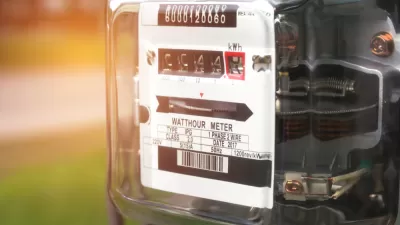Beginning last year, states increased gas taxes and entered public-private partnerships, as are some cities. But it's not an easy haul for cities nor states, and Congress has yet to agree how to furnish sufficient revenue to match current spending.
"Before this burst, no state had raised its gas tax for nearly four years, according to the Institute on Taxation and Economic Policy (ITEP), a nonprofit research group," writes Josh Mitchel. The first state to break the gas tax increase freeze was Wyoming.
See ITEP's publication, "How Long Has it Been Since Your State Raised Its Gas Tax?" to see a chart that shows (as of April 1, 2014) "the number of years that have elapsed since each state’s gas tax rate was last increased." Alaska is the champion at almost 44 years.
More common is the use of public-private partnerships, also referred to as P3s, for specific projects that governments might otherwise be unable to finance.
Crimped for funds, a slew of cities and states such as New York, Texas and Indiana are teaming up with private companies to build roads, bridges and other public projects, moving into zones once funded by gas-tax dollars or traditional state bonds. These partnerships replicate a model long practiced in Europe, with private firms putting up initial funding in exchange for future guaranteed payments, through toll revenue or other sources.
FULL STORY: States Raise Gas Taxes to Pay for Infrastructure

Maui's Vacation Rental Debate Turns Ugly
Verbal attacks, misinformation campaigns and fistfights plague a high-stakes debate to convert thousands of vacation rentals into long-term housing.

Planetizen Federal Action Tracker
A weekly monitor of how Trump’s orders and actions are impacting planners and planning in America.

In Urban Planning, AI Prompting Could be the New Design Thinking
Creativity has long been key to great urban design. What if we see AI as our new creative partner?

King County Supportive Housing Program Offers Hope for Unhoused Residents
The county is taking a ‘Housing First’ approach that prioritizes getting people into housing, then offering wraparound supportive services.

Researchers Use AI to Get Clearer Picture of US Housing
Analysts are using artificial intelligence to supercharge their research by allowing them to comb through data faster. Though these AI tools can be error prone, they save time and housing researchers are optimistic about the future.

Making Shared Micromobility More Inclusive
Cities and shared mobility system operators can do more to include people with disabilities in planning and operations, per a new report.
Urban Design for Planners 1: Software Tools
This six-course series explores essential urban design concepts using open source software and equips planners with the tools they need to participate fully in the urban design process.
Planning for Universal Design
Learn the tools for implementing Universal Design in planning regulations.
planning NEXT
Appalachian Highlands Housing Partners
Mpact (founded as Rail~Volution)
City of Camden Redevelopment Agency
City of Astoria
City of Portland
City of Laramie




























